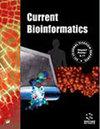Integrated Somatic Mutation Network Diffusion Model for Stratification of Breast Cancer into Different Metabolic Mutation Subtypes
IF 2.9
3区 生物学
Q3 BIOCHEMICAL RESEARCH METHODS
引用次数: 0
Abstract
Background: Mutations in metabolism-related genes in somatic cells potentially lead to disruption of metabolic pathways, which results in patients exhibiting different molecular and pathological features. background: Mutations in metabolism-related genes in somatic cells potentially lead to disruption of metabolic pathways, which results in patients exhibiting different molecular and pathological features. Objective: In this study, we focused on somatic mutation data to investigate the significance of metabolic mutation typing in guiding the prognosis and treatment of breast cancer patients. objective: In this study, we focused on somatic mutation data to investigate the significance of metabolic mutation typing in guiding the prognosis and treatment of breast cancer patients. Methods: The somatic mutation profile of breast cancer patients was analyzed and smoothed by utilizing a network diffusion model within the protein-protein interaction network to construct a comprehensive somatic mutation network diffusion profile. Subsequently, a deep clustering approach was employed to explore metabolic mutation typing in breast cancer based on integrated metabolic pathway information and the somatic mutation network diffusion profile. In addition, we employed deep neural networks and machine learning prediction models to assess the feasibility of predicting drug responses through somatic mutation network diffusion profiles. Results: Significant differences in prognosis and metabolic heterogeneity were observed among the different metabolic mutation subtypes, characterized by distinct alterations in metabolic pathways and genetic mutations, and these mutational features offered potential targets for subtype-specific therapies. Furthermore, there was a strong consistency between the results of the drug response prediction model constructed on the somatic mutation network diffusion profile and the actual observed drug responses. Conclusion: Metabolic mutation typing of cancer assists in guiding patient prognosis and treatment.将乳腺癌分为不同代谢突变亚型的体细胞突变网络扩散综合模型
背景:体细胞中代谢相关基因的突变可能导致代谢途径的中断,从而使患者表现出不同的分子和病理特征:体细胞中代谢相关基因的突变可能导致代谢途径的中断,从而使患者表现出不同的分子和病理特征。研究目的在本研究中,我们以体细胞突变数据为重点,研究代谢突变分型对乳腺癌患者预后和治疗的指导意义:本研究以体细胞突变数据为重点,探讨代谢突变分型对乳腺癌患者预后和治疗的指导意义。方法利用蛋白质-蛋白质相互作用网络中的网络扩散模型对乳腺癌患者的体细胞突变情况进行分析和平滑处理,从而构建一个全面的体细胞突变网络扩散图。随后,根据综合代谢通路信息和体细胞突变网络扩散图谱,采用深度聚类方法探索乳腺癌的代谢突变分型。此外,我们还采用了深度神经网络和机器学习预测模型来评估通过体细胞突变网络扩散图谱预测药物反应的可行性。结果不同的代谢突变亚型在预后和代谢异质性方面存在显著差异,这些亚型以代谢途径和基因突变的不同改变为特征,这些突变特征为亚型特异性疗法提供了潜在靶点。此外,根据体细胞突变网络扩散特征构建的药物反应预测模型的结果与实际观察到的药物反应之间具有很强的一致性。结论癌症代谢突变分型有助于指导患者的预后和治疗。
本文章由计算机程序翻译,如有差异,请以英文原文为准。
求助全文
约1分钟内获得全文
求助全文
来源期刊

Current Bioinformatics
生物-生化研究方法
CiteScore
6.60
自引率
2.50%
发文量
77
审稿时长
>12 weeks
期刊介绍:
Current Bioinformatics aims to publish all the latest and outstanding developments in bioinformatics. Each issue contains a series of timely, in-depth/mini-reviews, research papers and guest edited thematic issues written by leaders in the field, covering a wide range of the integration of biology with computer and information science.
The journal focuses on advances in computational molecular/structural biology, encompassing areas such as computing in biomedicine and genomics, computational proteomics and systems biology, and metabolic pathway engineering. Developments in these fields have direct implications on key issues related to health care, medicine, genetic disorders, development of agricultural products, renewable energy, environmental protection, etc.
 求助内容:
求助内容: 应助结果提醒方式:
应助结果提醒方式:


